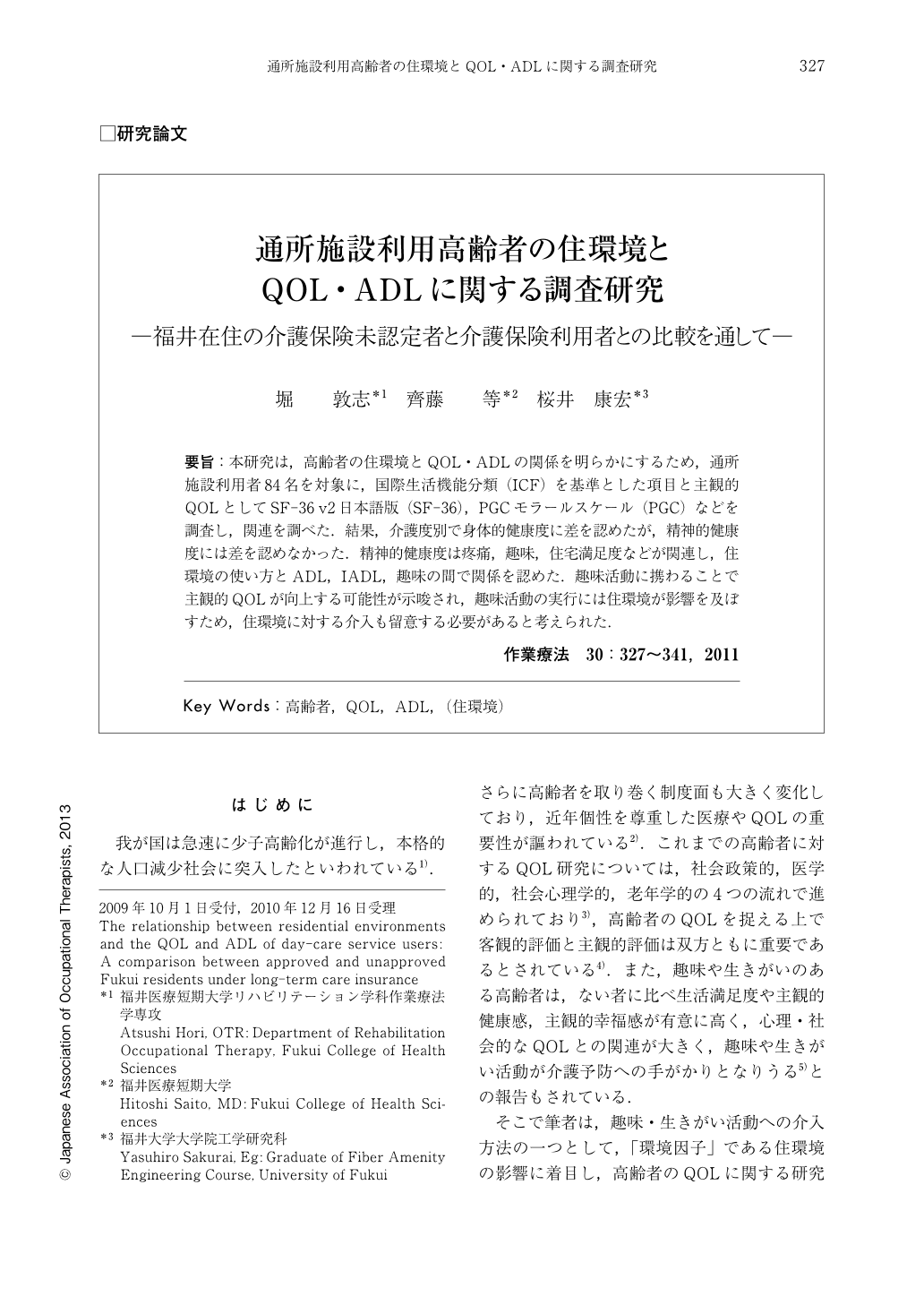Japanese
English
- 販売していません
- Abstract 文献概要
- 1ページ目 Look Inside
- 参考文献 Reference
- サイト内被引用 Cited by
要旨:本研究は,高齢者の住環境とQOL・ADLの関係を明らかにするため,通所施設利用者84名を対象に,国際生活機能分類(ICF)を基準とした項目と主観的QOLとしてSF-36v2日本語版(SF-36),PGCモラールスケール(PGC)などを調査し,関連を調べた.結果,介護度別で身体的健康度に差を認めたが,精神的健康度には差を認めなかった.精神的健康度は疼痛,趣味,住宅満足度などが関連し,住環境の使い方とADL,IADL,趣味の間で関係を認めた.趣味活動に携わることで主観的QOLが向上する可能性が示唆され,趣味活動の実行には住環境が影響を及ぼすため,住環境に対する介入も留意する必要があると考えられた.
The aim of this study was to clarify the relationship between the residential environments of elderly users of day-care service and QOL/ADL. “Items based on International Classification of Functioning, Disability and Health (ICF)” and “Subjective experience” (MOS36-Item Short-Form Health Survey v2 [SF-36] and Philadelphia Geriatric Center Morale Scale [PGC], etc.) concerning 84 day-care service users, and their relationships were investigated.
As a result, depending on the level of required care, a difference was not perceived in the Mental Component Summary though a difference was discerned in the Physical Component Summary. Pain, hobbies, the degree of satisfaction with a house, etc were related to the Mental Component Summary, which was found to be particularly influenced by hobbies. Moreover, a relationship was perceived between usage of the residential environments and ADL/QOL, and also between their usage and hobbies.
These results suggest the possibility of subjective QOL improvement through involvement in hobbies. As the residential environments affect participating in hobbies, intervention in the residential environments should be considered.

Copyright © 2011, Japanese Association of Occupational Therapists. All rights reserved.


